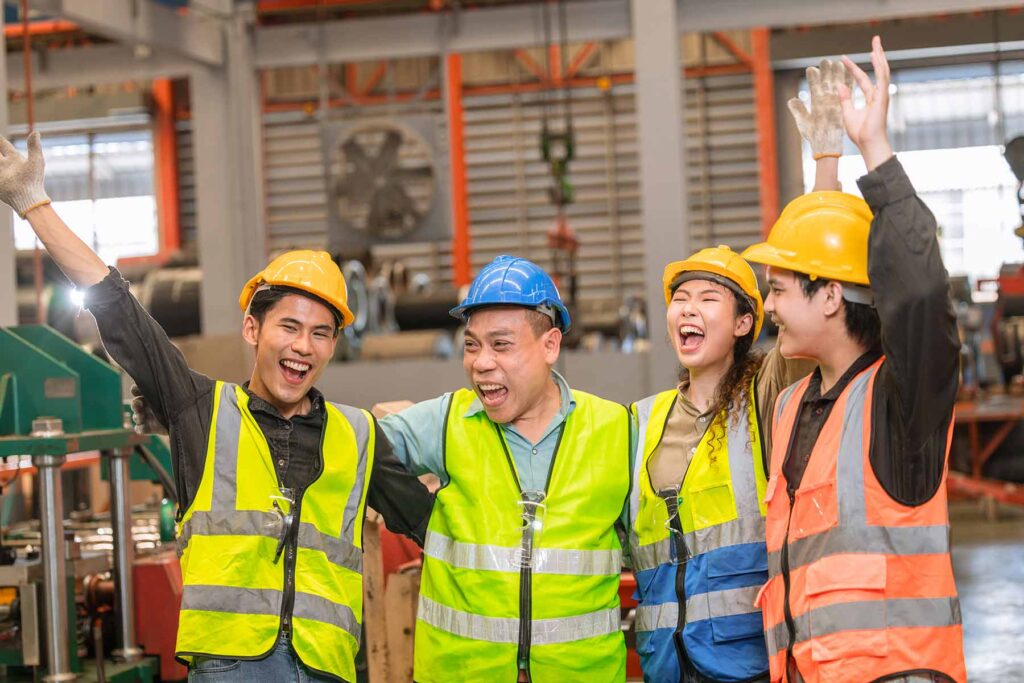The Global Footprint of Overseas Filipino Workers (OFWs)
Filipinos have become a vital part of the global workforce, with millions working in nearly every continent. From the bustling cities of the Middle East to the tech hubs of North America and the healthcare facilities of Europe, Overseas Filipino employment has proven essential to both the local and global economy. This growing presence did not happen overnight—it began decades ago when Filipinos sought better opportunities abroad due to limited local employment options and economic instability. Over time, this migration transformed into a global network of skilled professionals known for their hard work, adaptability, and dedication. Today, Filipinos are in high demand across industries such as healthcare, construction, engineering, maritime, hospitality, and information technology. Employers around the world consistently recognize the value of Filipino workers, citing their commitment, resilience, and positive attitude toward work. This global footprint continues to expand as new opportunities emerge in sectors that rely heavily on reliable and skilled manpower.
Why Filipinos Choose Overseas Employment
The motivation behind Overseas Filipino employment is deeply rooted in the desire for financial stability and family welfare. Many Filipinos pursue jobs abroad to secure a better future for their families, pay for education, build homes, or invest in small businesses back home. The higher wages and improved working conditions offered overseas are often the main driving forces behind this decision. Beyond financial reasons, many Filipinos also see overseas work as an avenue for career advancement and personal growth. Working abroad exposes them to diverse cultures, modern technologies, and professional systems that enhance their skills and experience. Government programs and licensed recruitment agencies play an important role in facilitating this process by connecting workers with legitimate employers abroad. Another factor that makes Filipinos stand out is their cultural adaptability—whether they work in Europe, Asia, or the Middle East, they adjust easily and build harmonious relationships with locals and colleagues. Ultimately, Overseas Filipino employment reflects not just economic necessity but also the Filipino spirit of perseverance and ambition.
The Economic Impact of Overseas Filipino Employment
The contribution of Overseas Filipino employment to the Philippine economy is enormous. Remittances sent by OFWs have consistently been a major source of national income, helping to stabilize the economy even during global recessions. These financial inflows support millions of Filipino families, fund education, healthcare, and small enterprises, and help drive domestic consumption. In fact, remittances have fueled the growth of real estate, retail, and financial services sectors in the Philippines. Aside from household benefits, the steady inflow of foreign currency strengthens the peso and provides the government with fiscal stability. Yet, the economic impact goes beyond numbers—it shapes communities, sustains livelihoods, and inspires future generations to dream big. While the Philippines gains economically, the global economy also benefits from the dedication and skills of Filipino workers. Countries like Japan, Saudi Arabia, Canada, and the UAE continue to rely on Filipino professionals to fill crucial labor shortages, further proving the indispensable role of OFWs in global development.
Navigating the Recruitment and Deployment Process
For aspiring overseas workers, understanding the proper process is crucial to ensuring safe and legal employment. The Philippine Overseas Employment Administration (POEA) regulates all recruitment activities, requiring agencies to be licensed and transparent in their operations. Before deployment, workers must undergo pre-employment orientation seminars, skills training, and medical examinations. Essential documents such as passports, employment contracts, and clearances from government agencies are also required. Unfortunately, illegal recruiters still exist, preying on those who are unaware of proper procedures. To protect themselves, applicants should always verify job postings and agencies through official government websites. Legitimate recruitment ensures the worker’s safety, welfare, and fair treatment abroad. Below are key steps to remember when pursuing Overseas Filipino employment:
- Verify the legitimacy of the recruitment agency with POEA.
- Attend mandatory pre-departure orientation seminars.
- Review and understand your employment contract thoroughly.
- Keep copies of all submitted documents and receipts.
- Never pay excessive fees or transact outside licensed offices.
Following these steps helps guarantee that Filipino workers leave the country with security, confidence, and peace of mind, knowing they are protected under the law.
Life Abroad: The Realities of Being an Overseas Filipino Worker
While Overseas Filipino employment offers great opportunities, life abroad is not always easy. Many workers face homesickness, cultural differences, and occasional discrimination in the workplace. Despite these challenges, Filipinos remain strong and resilient, often forming tight-knit communities to support one another. These communities provide comfort, companionship, and a sense of belonging in foreign lands. Work conditions also vary depending on the country and industry—some experience long hours or physically demanding jobs, while others thrive in professional and managerial roles. The sacrifices are significant, as many miss important family milestones back home. However, technology has made it easier for OFWs to stay connected with their loved ones through video calls and social media. The experience of working abroad often teaches valuable lessons about independence, financial discipline, and cultural respect. For many, the journey becomes a story of growth and transformation that extends beyond financial gain.
Government Protection and Support Systems
The Philippine government, through agencies like OWWA, POEA, and DOLE, ensures the protection and welfare of Filipino workers overseas. These institutions provide assistance before, during, and after deployment. OWWA offers welfare programs, insurance coverage, and emergency aid to members, while POEA regulates agencies and ensures ethical recruitment practices. Embassies and consulates abroad serve as safe havens for distressed workers, offering legal and psychological support when needed. Repatriation programs are in place to bring home OFWs facing emergencies, job loss, or exploitation. The government also promotes awareness campaigns against illegal recruitment and human trafficking to safeguard workers’ rights. Through these programs, the Philippine government reinforces its commitment to every OFW’s safety and dignity. The collaboration between public agencies, NGOs, and international organizations ensures that Overseas Filipino employment remains both beneficial and humane.
Reintegration and Returning Home
Returning home after years abroad presents both excitement and challenges. Many OFWs struggle with financial management or adjusting back to local life. The Philippine government offers reintegration programs that include livelihood training, entrepreneurship workshops, and financial education. OWWA’s Reintegration Program provides capital assistance for business ventures, while TESDA offers skill development courses to help returning workers transition to local employment. Some returning OFWs have successfully established small businesses, transforming their overseas experience into long-term stability. However, sustainable reintegration requires proper financial planning and continuous guidance. Common challenges include lack of savings, difficulty finding local employment, and emotional adjustment after long separation from family. Despite these hurdles, many Filipinos use their overseas experience to inspire others and contribute to community growth. Reintegration is not just about returning home—it’s about starting a new chapter with wisdom gained from years of sacrifice.
The Future of Overseas Filipino Employment
As the global labor market evolves, Overseas Filipino employment is also undergoing transformation. Digitalization, automation, and remote work opportunities are reshaping how Filipinos participate in the international workforce. More professionals are now working online for global companies without leaving the Philippines, signaling a shift toward digital migration. Healthcare, engineering, and IT remain high-demand sectors, but new opportunities are emerging in renewable energy, e-commerce, and creative industries. Governments and private institutions are also focusing on upskilling and digital literacy to prepare workers for future demands. The next decade will likely see a mix of physical and virtual overseas employment, allowing Filipinos to earn globally while staying connected to their homeland. This evolution shows that the Filipino workforce remains adaptable, competitive, and ready to embrace the future of work.
Frequently Asked Questions (FAQ)
What are the most in-demand jobs for Filipinos abroad?
Healthcare professionals, engineers, construction workers, seafarers, and domestic helpers remain among the most sought-after roles for Filipinos overseas.
How can I verify if a recruitment agency is legitimate?
Check the POEA website or contact their office to confirm if the agency is licensed and accredited. Avoid recruiters that ask for excessive fees or promise instant deployment.
What are the main benefits of becoming an OFW?
Higher income, global work experience, professional growth, and the ability to provide better living conditions for one’s family are the main advantages.
What challenges should I expect when working overseas?
Cultural adjustment, homesickness, long working hours, and occasional labor issues are some of the common challenges.
Are there government programs that help OFWs start a business when they return?
Yes, programs like OWWA’s Reintegration Program and DOLE’s livelihood assistance help returning OFWs start small businesses and achieve long-term financial stability.
Takeaway
Overseas Filipino employment continues to shape the lives of millions and drive the nation’s progress. It reflects the courage, resilience, and ambition of Filipinos who seek better opportunities beyond the country’s borders. While challenges persist, the combination of government support, proper guidance, and personal determination ensures that the OFW journey remains one of growth and empowerment. As the world of work continues to evolve, the Filipino spirit of excellence and compassion will remain a beacon of hope for families, communities, and nations around the globe.
















